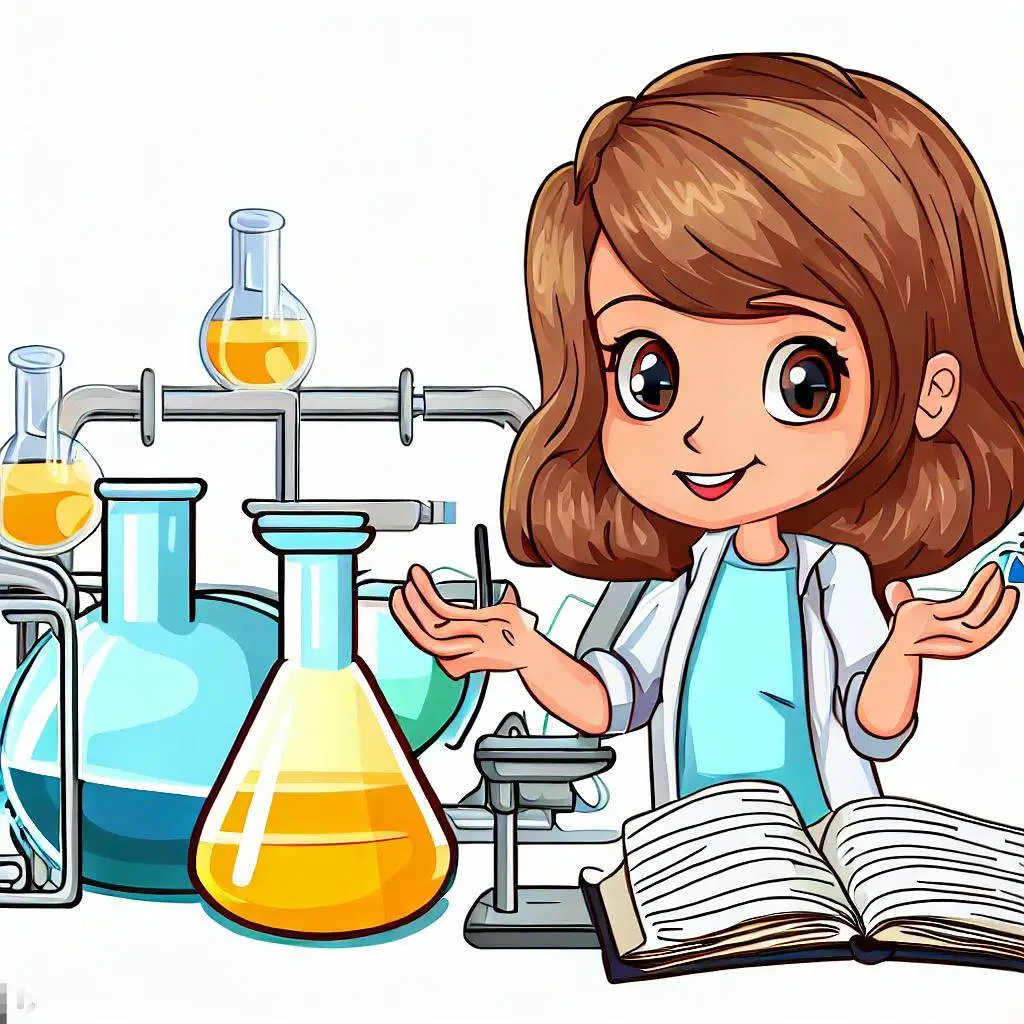In the field of chemical engineering, completing an assignment on a separation process requires not only an in-depth understanding of the subject matter at hand but also access to credible sources of information. This is a requirement for the successful completion of the separation process assignment. These tasks frequently involve intricate ideas and the application of those ideas in real-world scenarios, which call for an all-encompassing strategy.
In this blog, we are going to take a more in-depth look at the top 10 online resources that are available to students for the purpose of assisting them in effectively completing separation process assignments. These resources can be found on the internet. These diverse resources, which range from textbooks and research papers to online forums and simulation software, offer invaluable assistance in gaining a firm grasp of fundamental ideas, resolving issues, and expanding one's knowledge in the field of separation processes. If students make use of the resources that are made available to them, they will have the opportunity to improve their academic performance and acquire a more in-depth understanding of this essential aspect of chemical engineering.

1. Textbooks and Reference Books
The first thing you should do to build a solid foundation in separation processes is to read scholarly works written by experts in the field, such as textbooks and reference books. The titles "Unit Operations of Chemical Engineering" by Warren L. McCabe, Julian C. Smith, and Peter Harriott; "Separation Process Principles" by J.D. Seader, Ernest J. Henley, and D. Keith Roper; and "Distillation Design" by Henry Z. Kister are some examples of books that come highly recommended. These books present in-depth analyses of a wide variety of separation processes, underlying principles, and practical applications. In addition to this, they are invaluable resources for both the theoretical and practical aspects of separation process assignments.
2. Online Journals and Research Papers
Maintaining awareness of the most recent findings of research and advancements made in the field of separation processes is an absolute prerequisite for producing high-quality work in this area. The scholarly articles, research papers, and case studies that can be found in online journals such as "Industrial & Engineering Chemistry Research," "Chemical Engineering Science," and "Separation and Purification Technology" are excellent places to look for information. Other online journals that contain this type of content include "Separation and Purification Technology." By gaining access to these resources, which offer insights into cutting-edge techniques, novel processes, and industrial applications, students have the opportunity to broaden their knowledge and incorporate the most recent advancements into their assignments. This presents students with a unique learning opportunity.
3. Online Forums and Discussion Boards
Participating in online forums and discussion boards that are specifically devoted to the subject matter of chemical engineering and separation processes can significantly improve students' knowledge of those subjects. You can find opportunities to connect with other students, professionals, and educators on a variety of online platforms, such as the Engineering Stack Exchange and the r/ChemicalEngineering subreddit on Reddit, respectively. Students have the opportunity to seek clarifications, communicate their ideas with one another, and receive direction regarding specific separation process assignments when they submit a discussion post. By actively participating in these communities, one can improve their overall comprehension of the subject matter, foster collaboration, receive assistance in the search for solutions to problems, and receive assistance in finding solutions to problems.
4. Simulation Software and Tools
The utilization of simulation software is absolutely necessary for both the comprehension of separation procedures and the development of new and improved methods. Students have the ability to model and simulate a variety of different separation processes by using software such as Aspen Plus, ChemCAD, and Hysys. Methods such as distillation, extraction, adsorption, and membrane processes are examples of some of these techniques. Students are given the opportunity to gain practical knowledge through the use of these tools, which permit them to analyze the impact of various parameters, improve the conditions of the process, and visualize the behavior of separation units. Students have the potential to significantly improve their ability to solve separation process assignments by gaining access to the aforementioned software, whether through university licenses or trial versions of the software. This is possible for students to do in a number of different ways.
5. Online Video Tutorials and Lectures
Visual learning is a method that can be used to improve both the speed and effectiveness with which one is able to comprehend complex concepts. There are numerous websites, such as YouTube, Khan Academy, and MIT OpenCourseWare, that have compiled extensive libraries of video lectures and tutorials pertaining to a wide variety of different types of separation processes. These resources provide information on a wide variety of topics, ranging from fundamental ideas to more advanced methods, and they were developed by knowledgeable instructors. Students can use these videos to strengthen their understanding, clear up any questions they have, and gain some valuable insights into the practical aspects of separation processes. These videos are available on the school website.
6. Online Courses and MOOCs
Massive Open Online Courses, better known by their acronym MOOCs, provide students with a more structured learning environment that can be utilized in conjunction with traditional in-person classroom instruction. There are many different online education resources available, such as Coursera, edX, and Udemy, that offer training programs on the various processes of separation. Students have the opportunity to build a strong foundation in separation techniques by enrolling in these courses, which provide in-depth knowledge and also include assignments and quizzes. By doing so, students are given the opportunity to develop a solid foundation in separation techniques. In addition, the completion of particular courses with a passing grade can result in the awarding of certificates, which students can then include on their resumes if they so choose.
7. Academic Databases
Access to academic databases is an absolute requirement if one wishes to acquire peer-reviewed articles, research papers, and technical reports. These kinds of databases include ScienceDirect, the Wiley Online Library, and IEEE Xplore, to name a few examples. Students are able to collect credible and up-to-date information for their assignments by accessing these databases, which offer a vast collection of the scholarly literature related to separation processes. These databases can be found on the internet. Students are granted access to these databases through the libraries of the majority of educational institutions. This helps to ensure that students have all of the appropriate resources available to them.
8. Chemical Engineering Associations
Participation in professional associations and organizations, such as the American Institute of Chemical Engineers (AIChE) or the Institution of Chemical Engineers (IChemE), enables students to open doors to a plethora of opportunities and advantages not available to them otherwise. Access to a wide range of resources, such as journals, technical publications, webinars, conferences, and opportunities for networking, is frequently made available to members of these associations. Students who become members of the organization will have the opportunity to gain access to the most recent trends, developments, and best practices in the field of separation processes. They will have the opportunity to incorporate insights gained from the industry into their academic work as a result of this.
9. Virtual Laboratory Simulations
Through the utilization of virtual laboratory simulations, which do away with the requirement for actual equipment, learning can be made to be more hands-on and realistic. Students are provided with the opportunity to conduct experiments, analyze data, and learn through the process of hands-on exploration through the utilization of platforms such as Labster and ChemCollective, which provide interactive simulations of separation processes. Students also have the opportunity to learn through the process of hands-on exploration. Because these labs are virtual, students can work in an environment that is risk-free and well-managed, thereby enhancing their ability to comprehend the complexities of separation procedures and improving their overall understanding.
10. Personal Guidance from Professors and Tutors
Students shouldn't be afraid to approach their professors, teaching assistants, or tutors for one-on-one assistance whenever they feel they need it. This should be the last point on this list. These professionals are able to provide useful insights, answer any questions, and provide direction that is specific to the requirements of the assignments for the separation process. Students who have developed strong relationships with their teachers have a better chance of receiving individualized assistance and performing exceptionally well in their coursework. This is because teachers are more likely to take an interest in their students when they have established rapport with them.
Conclusion
In conclusion, one of the most important factors that contribute to the successful completion of separation process assignments pertaining to the separation process is making use of the top 10 resources that have been outlined in this blog post. Students can strengthen their theoretical foundations by delving into supplemental materials such as online journals, research papers, and textbooks. Participating in online forums and discussion boards helps cultivate skills related to working together and finding solutions to problems, and simulation software makes it possible to conduct hands-on research into a variety of methods for separating different types of materials. When a person participates in online courses, views online video tutorials, and listen to online lectures, their level of comprehension is enhanced, and the experience of learning is made more organized for them. Additionally, academic databases, chemical engineering associations, virtual laboratory simulations, and individual guidance from professors are all excellent sources of support that can be extremely helpful. If students make effective use of the resources that are made accessible to them, they will have a greater chance of achieving success in the separation process assignments they are given, expanding the breadth and depth of their knowledge, and achieving success in the field of chemical engineering.

